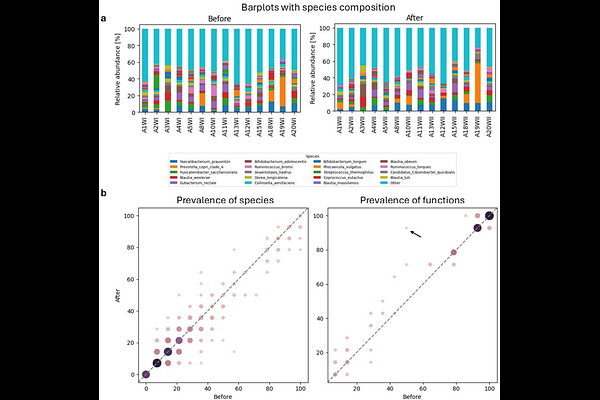High-altitude mountaineering induces adaptive gut microbiome shifts associated with dietary intake and performance markers

High-altitude mountaineering induces adaptive gut microbiome shifts associated with dietary intake and performance markers
Karpecka-Gałka, E.; Zielinska, K.; Fraczek, B.; Łabaj, P.; Kosciołek, T.; Huminska-Lisowska, K.
AbstractThis study examined how high-altitude exposure and expedition-specific dietary changes influence gut microbiome composition, functional pathways, and their relationships with performance and health markers in alpinists. Seventeen male mountaineers (age 30.29 +/- 5.8 years) participating in multi-week expeditions (>3,000 MASL) were assessed before and after their climbs. Assessments included dietary intake analysis, blood and urine biomarkers, aerobic and anaerobic performance tests, and metagenomic sequencing of the gut microbiome. Bioinformatic and statistical analyses evaluated changes in microbiome composition and function and their correlations with physiological and dietary parameters. High-altitude exposure was associated with significant shifts in gut microbial composition and functional capacity. While the total number of bacterial species and functions remained stable, the glucose degradation pathway increased post-expedition. Participants with greater microbiome shifts showed improved performance and had richer baseline microbiomes. Pre-expedition, certain microbial functions were associated with vitamin B6 and C intake, while post-expedition correlations involved specific macronutrients and micronutrients. Additionally, some microbiome changes correlated with blood markers, indicating links to nutrient metabolism and electrolyte balance. The gut microbiome of alpinists adapts to extreme environmental stress and dietary changes, influencing metabolic, immune, and performance-related processes. Optimizing dietary strategies to support a beneficial microbiome profile may enhance resilience and performance in challenging high-altitude environments.